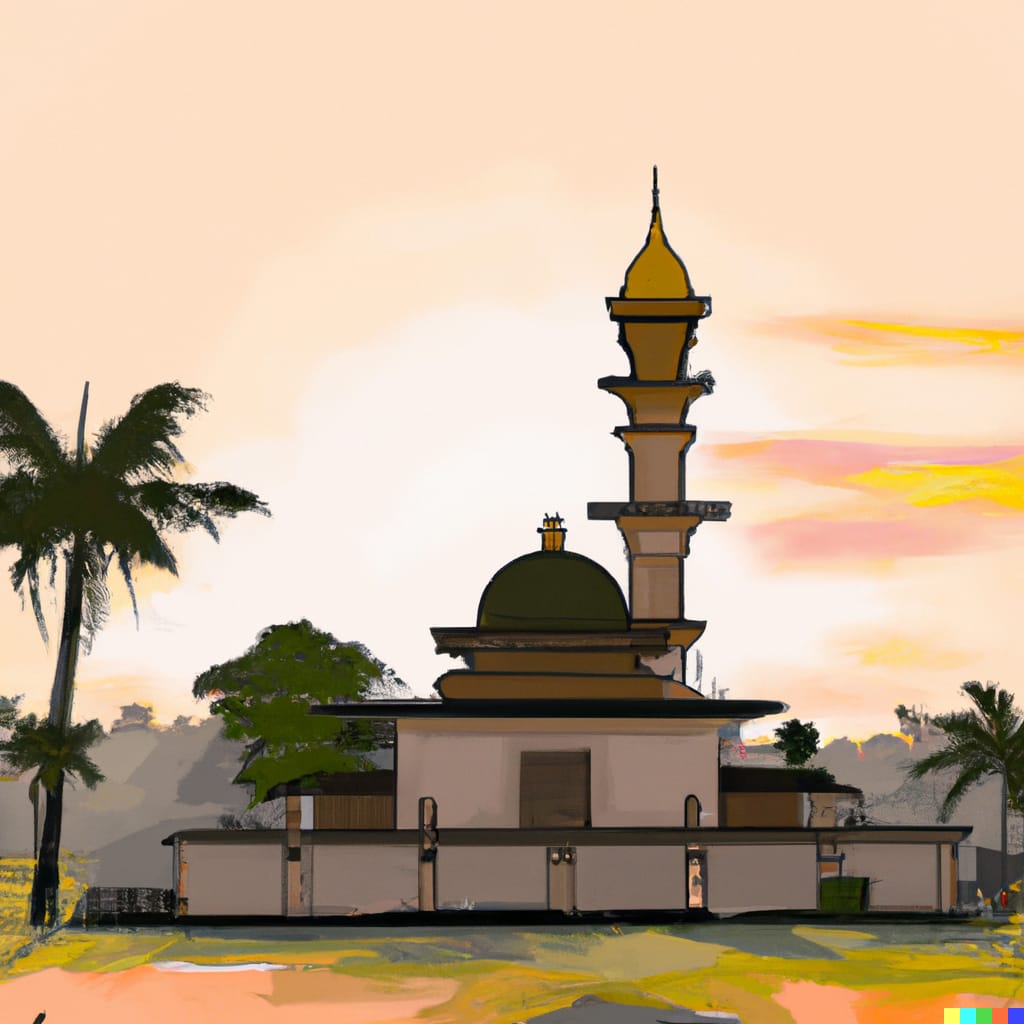Indonesia has a different style of Islam from Islam in other Muslim and non-Muslim countries. For a long time, this uniqueness has invited many researchers, especially in Islamic Studies, to study Islam in Indonesia.
The trajectory of the entry of Islam into Indonesia influenced this pattern. Many opinions agree that Islam was spread through trade routes. In addition to the way of trading, it is indicated that the Islamic model taught at that time was Sufistic teaching. It was evidenced by the number of prominent Islamic figures in Indonesia who have Sufism teaching methods.
The spreaders of Islam directly negotiated between Islamic principles and traditions in Indonesia. The result of these negotiations succeeded in becoming a mediator between tradition and Islam in Indonesia. It can be seen in Java that was influenced by Walisongo (Nine Saints), who taught Sufi teachings.
However, the current global challenges Islam faces in Indonesia cannot be easily ignored. The global challenges framed the Ideology in the name of Islam. Such as Populist Islamic movements, puritanism, liberalism, feminism, secularism, modernism, et cetera.
Reflecting on history, any Islamic organization that carries a non-negotiable ideology from outside Indonesia will usually not last long. For example, the Ideology promoted by ISIS and religious extremist minions is automatically rejected in Indonesia.
Islamic ideologies from outside Indonesia will directly or indirectly confront two Islamic organizations in Indonesia, Nahdlatul Ulama’ (NU) and Muhammadiyah.
These two organizations have been the face of Islam in Indonesia since before the independence era. In the Muktamar in each organizations, between 2015 and 2016, both organizations committed to moderate Islamic identity. Moderate Islam in each organization is reflected in the jargon of Islam Berkemajuan and Islam Nusantara, which have an identic vision and mission but are different. Moderate Islam is a response to the torrent of Islamic Ideology from outside Indonesia that cannot be contained due to the impact of globalization and digital advances.
Since 2018, the Indonesian State, through the Ministry of Religious Affairs, has recognized the idea of Moderate Islam with the Religious Moderation as a form of Islamic Ideology in Indonesia is closely related to the Indonesian nation’s moral aspects. Also, the National Medium-Term Development Plan (RPJMN) for 2020-2024 includes aspects of religious Moderation as a national-scale Human Resources Development.
This effort results from negotiating moderate Islamic Ideology in Indonesia to be recognized and become a priority program. In addition to being a bulwark against ideologies considered not moderate in the Indonesian context, Moderate Islam is also expected to be a bastion of peace that mediates the entire diversity of culture and Religion in Indonesia.
The future of Moderate Islam in Indonesia
As a religious perspective born from Muslim society, Moderate Islam will become a qualified philosophy of life as a way of negotiating and mediating every policy of the State, Ideology from global Islamic issues, or intra-internal Islamic conflicts in Indonesia itself.
On the other hand, as a Muslim morality, Moderate Islam combines Islamic teachings and morality values owned by the Indonesian people.
Moderate Islam full of theological aspects will turn into theological-ethical. However, under certain conditions, for example, Moderate Islam will have political nuances that cannot be avoided. Whether we admit it or not, the most important thing for a State is political stability. The State’s participation had the opportunity to establish clear indicators for Moderate Islam.
Indicators Moderate Islam should be a common ethical aspect recognized by all forms of heterogony. When Islam Moderate turns into a moral aspect, people will give different interpretations. Diversity Interpretation of localities will be interrelated between one difference and another. Thus, when the Indonesian State changes rulers or political Interests, Moderate Islam will not change. It has become the identity of the nation.
Moderate forms of Islam oriented towards theological, ethical, and political aspects will automatically reject ideologies contrary to Indonesian cultural values and norms. For example, rejecting Lesbian, Gay, Bisexual, Transgender, and Queer (LGBTQ) behavior is incompatible with morality. Another example, suicide bombings, would not have happened if someone had a moderate Islamic morality.
The three standards will undoubtedly invite the question of prolonged multi-theoretical questions, what is Islam? What is ethical? What is politics? and so on. However, as long as religious, political, and ethical values can be harmonized, it will become a form of Moderate Islam.
In addition to being a bulwark against ideologies from outside Indonesia, Moderate Islam is also a stronghold of peace in mediating conflicts that occur in Indonesia caused by unstable harmony between morals, Religion, and political values. For example, allowed by Religion but not allowed by the Indonesian State is the establishment of the Islamic State in Indonesia.
Or, it is morally valid in certain ethnics but not allowed by Islamic view is drinking Arak. Another example is separatist group vis a vis the State by certain ethnic groups that are legitimate according to local morals but not from the State’s point of view.
Any conflict that occurs, both intra and inter conflicts, that are theological, ethnic, or political, will be able to be negotiated and mediated by Moderate Islam. This framework reconstructs Moderate Islam which is no longer just a middle-path Islamic meaning. However, Moderate Islam is an Islam based on Religious, Ethical, and Political values and norms. In the future, Moderate Islam as Indonesian Islamic model will affect Islamic civilization in a global context.

